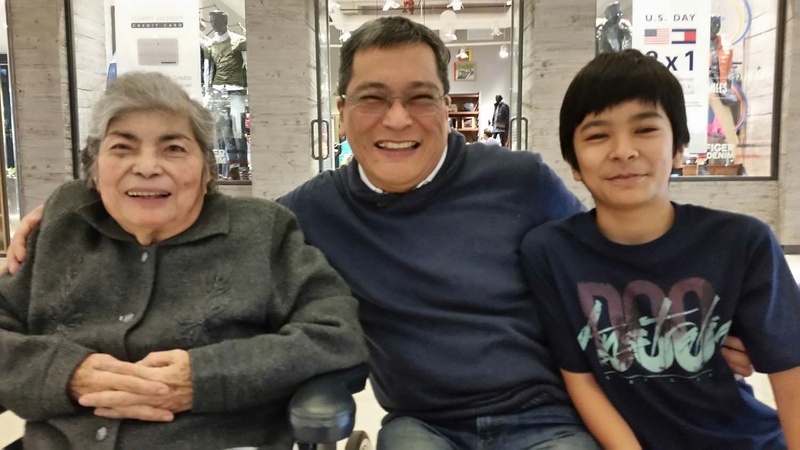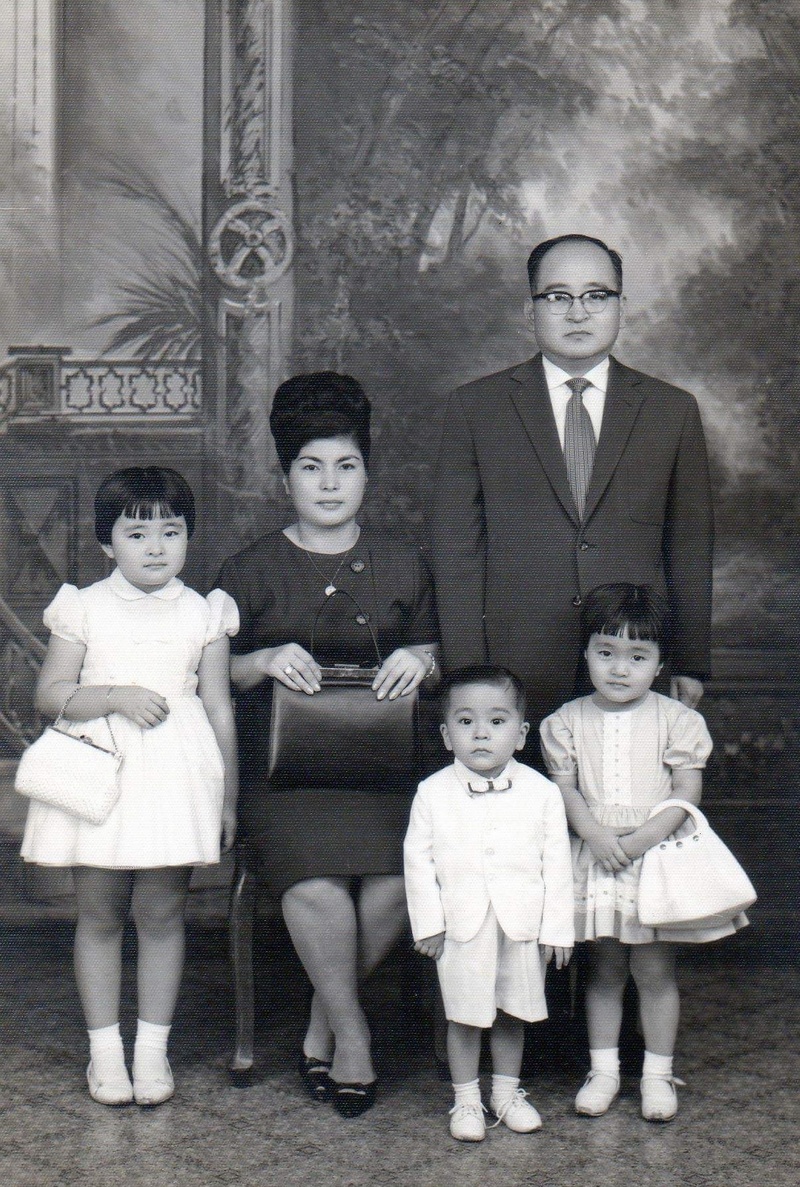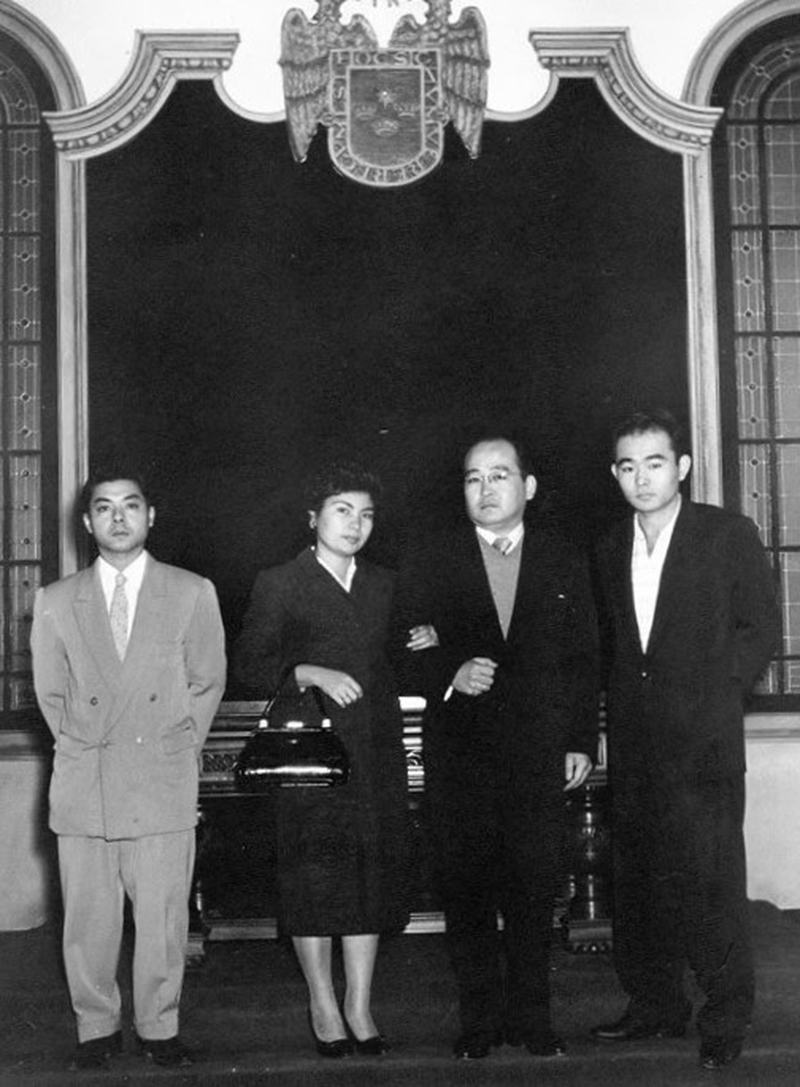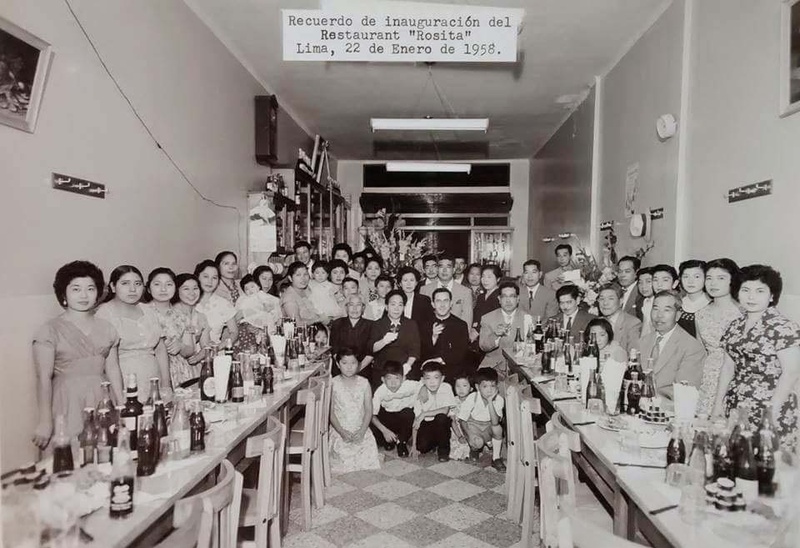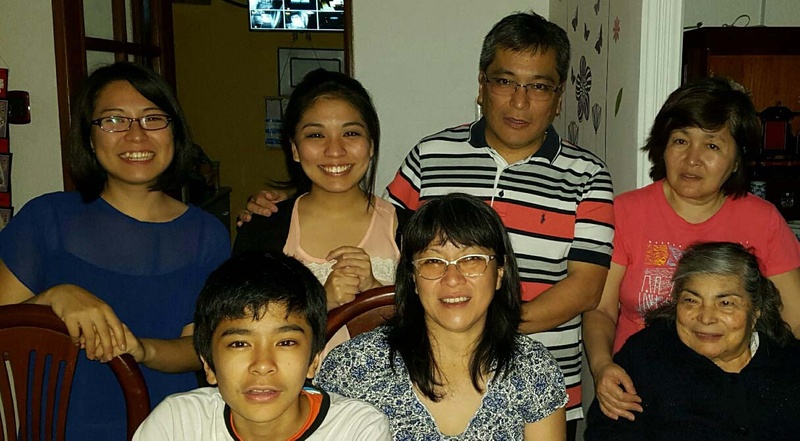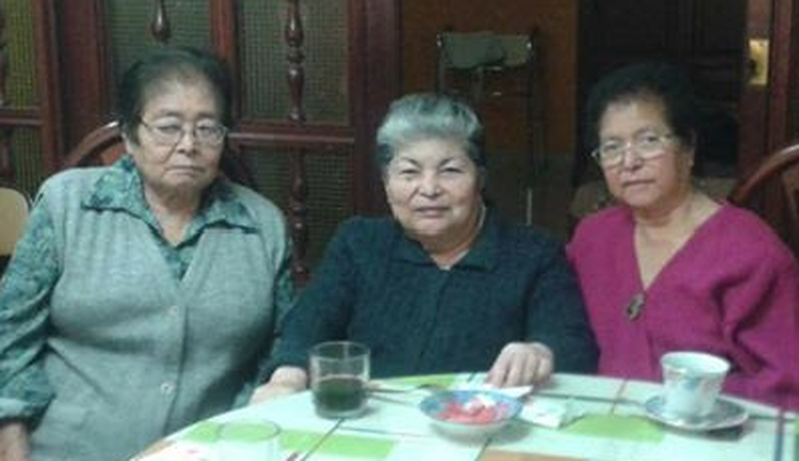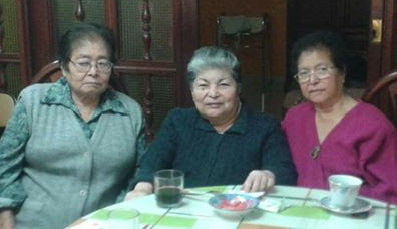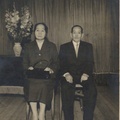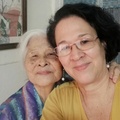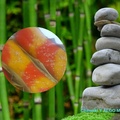This is my mother's story, her parents came from Okinawa, they were from Yonabaru, actually I don't know which ship she went on or what year; But, like all immigrants, they came for a dream of a better future: “to do okane ”, perhaps with the idea of doing it and returning to their country as soon as possible, the truth is that that did not happen.
My mother's name is Saturnina, a name she never liked and was given because a neighbor had that name... one of the consequences of not knowing the language, which is why many of the Nikkei are incorrectly registered and are brothers of a father and mother, they turn out being half-brothers, the surnames do not match in the games, they did not know how to explain it or those who registered were not interested because they were Japanese. She was the third, in total there were eight siblings, large families were very common in those times.
My grandparents worked very hard, but the truth is that they did not have much luck in jobs and trades; But, what I want to highlight is the mutual help that existed in our community, helping their countryman, friend and caring for each other's families. If they were left helpless, many helped, very few wanted to take personal advantage.
My grandparents had several jobs, one of them was what they called “carbonería” back then, where they sold coal. It was on Luna Pizarro street, La Victoria district in Lima. Everything was going normally until my grandmother got sick. Lung diseases were very common, perhaps due to coal or perhaps due to the sacrifice of having to feed so many children and, at the same time, not eating well. The truth is that he had tuberculosis, the disease of the poor.
We didn't have everything we have now and what was recommended was to go to Jauja, in the Sierra del Perú, where the climate was dry and people could be cured. What happened was that, in a few years, my grandparents and my two older aunts died, all from the same disease, bronchopneumonia. My mother, who back then, like everyone else, had been cooking since she was ten years old (her mother died when she was eleven years old). My mother had to stand on a chair to reach the kitchen, she tells me: “the first thing I cooked was stew.”
She had to assume the status of elder, her older sisters - before she died - had to go out to work at the homes of friends or countrymen, since the family economy was worse. When my grandfather died, my mother was 20 years old. The family made the decision for the minors to go live with some uncles who lived on the “Taboada” farm, in Callao, in Lima. My other aunts also had to go out to work.
My aunt Yoshiko married a much older person in an arranged marriage (a common thing then, by agreement between uncles and countrymen, seeking a better future for her). From there, she also helped the other siblings.
My aunt Lorenza changed her name and also her age, when she had to process her documents because she was not registered in the official registry. She went to work with the Tsukayama family when she was ten years old. At first she was very naughty, even that family complained to her uncles, she was very young and maybe she only thought about playing, but over time that family got so used to her that, when they returned to Okinawa, they wanted her to go with her. they. But, at that time my aunt was going to get married, so she stayed and, rather, Mr. and Mrs. Tsukayama gave her away at the marriage ceremony as if she were their parents. Finally, with great sadness they said goodbye. That family that did not have children, they saw her as if she were one. He was also from Yonabaru, like my grandparents. That was another show of solidarity between countrymen, giving her work and loving her like a daughter.
The uncles on the farm took care of my uncles Yolanda, Zoila and Benjamín, that does not mean that life was easy for them. Life in the countryside is very hard, getting up very early and working as a laborer, carrying a lot of weight, working from early until late, going through hardships, even with food. Harvests do not happen from one day to the next and, when there is no harvest, one suffers: Also from pests, low prices; But, my great-uncles were like my uncles' parents, while the other brothers tried to help with something for the minors. The valuable thing that remains is that, despite all the hardships, the brothers always remained united, they helped each other, until now.
As for my mother, she has had a difficult life like my other uncles. I know more about her because, little by little, she has been telling me. She was working in several houses of fellow countrymen of the same sonjin , in most of them she had many joys, being treated like another family member, in others not so much. She worked in a family's house for almost ten years, they had a restaurant, where the ojisan and obasan were very good. She was treated very well, as were her own children, although at that time she worked hard.
Over time the obasan became ill and died; After a while, loneliness caused the ojisan to have another wife. My mother, then, was made to sleep in a passageway where they hung the clothes to dry and she received all the humidity. But, she didn't say anything. There was also an employee who, when one of the sonjin 's countrymen came to visit, told him that this was not right, that this way he would get lung disease. He told it to the ojisan , who made a loft, a place to sleep. But, the new wife didn't like that, so she fired the employee.
The countrymen saw that this was not ideal; That's why, taking advantage of the fact that my aunt Yolanda was getting married, they said they were sending my mother to the farm to help her uncles get married, it was a way to get her out of where she was working. That was so that the people who had sheltered her would not say that she was ungrateful. In reality, it had been planned by the people of the sonjin who looked out for everyone to help their countrymen and so that injustices were not committed.
A few days ago I saw a photo in the article that Milagros Tsukayama writes on her blog Jiritsu , in which my mother appeared at the inauguration, at that time, of the Teruya family's new Rosita Restaurant (1958). Inside me I felt a tremendous joy to see my mother almost smiling, it made me remember everything that my mother told me for years and years, her joys, sufferings. She only worked there for two years, but my mother lived the best years of her life until then, there she did feel like a true daughter.
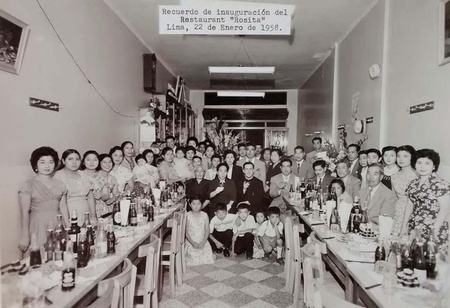
Obasan Teruya was a very good person, she treated her the same as her other children, she made no difference, she bought her clothes. There she just started to attend the sonjin meetings, she forced her to go, she told her: “you have to get to know your countrymen.” After I was married, my mother continued to visit her and even in difficult times, they continued to help my family.
What I want to highlight is the help among the countrymen of the same sonjin , people looked out for everyone, trying to help in some way: by giving work, financial aid or in another way. Doing justice in some cases, with the envelopes with money that we give as help when someone is sick, when they die. Also with the tanomoshi that in many cases were used to establish businesses and the results were the best. What would have happened to my mother and my uncles without that solidarity. As there are many cases, the motto was always to help each other.
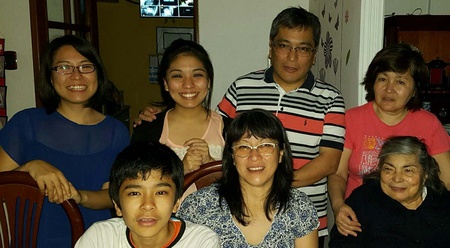
© 2017 Roberto Oshiro Teruya


